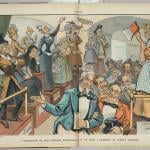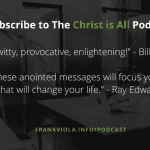Richard Muller points out the essential continuity of Protestant interpretation with patristic and medieval models: “The Reformers and, indeed, the Protestant orthodox all assumed that the living Word addressed the church directly in and from the text. In other words, they advocated a spiritual and ecclesial exegesis that participated in the same dynamic as patristic and medieval exegesis. This step from exposition to churchly dogma was not, therefore, ruled out on hermeneutical grounds. (This degree of hermeneutical continuity between the... Read more















